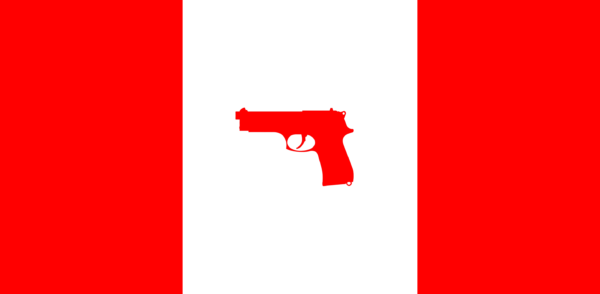As I’m writing this, there are marches in the United States for better gun control in the wake of another school shooting. There were even some in Canada in order to show solidarity for our neighbours down south. It’s no surprise that when it comes to the U.S., their own problems can overshadow ours. But Canada has its own gun control problems to figure out.
On March 20, the Canadian federal government announced plans to strengthen it’s own gun control laws, and many people have come out saying that they think the new laws don’t go far enough.
To begin, the new gun control laws change background checks and new mandatory bookkeeping practices for gun vendors. The new checks would allow the RCMP to check a person’s entire life for potential red flags and allow them to check a person’s mental health, addiction, and domestic violence records before authorizing them for a Possession and Acquisition License (PAL). Once the PAL has been issued, they will be continually checked to make sure the person doesn’t become a risk in the future. In addition, retailers would be required to maintain records of all inventories and sales. The mandatory record-keeping was revoked during the Stephen Harper government.

So why do we need better gun control laws?
If Canada was included in a list of 31 European countries, it would rank fourth in terms of gun homicide rates (only France, Germany, and Italy would rank higher).
According to an article run by CBC, there were 223 firearm related murders in 2016 in Canada, up 44 from 2015. And 80 per cent of firearm-related deaths are suicides in Canada (only the U.S., Uruguay, and Argentina have more gun-suicides per capita in the Americas, according to gunpolicy.org). In Toronto alone in 2017, there were 297 shootings by Oct. 2 — an average of a shooting a day. Shootings in Toronto increased by 41 per cent from 2015 to 2016, and Toronto police also noticed an uptick in domestic handgun trafficking.
This is also a problem for British Columbia. As of April 2016, Residents in Surrey had even considered severing ties with the RCMP and setting up their own police force in order to tackle the gun violence there.
So it makes sense why Trudeau would revamp gun legislation in Canada. But Heidi Rathjen, a survivor of the 1989 Polytechnique massacre, believes that these new changes to our gun laws don’t go far enough. She says that even though retailers are now required to keep records of their sales, police access to those records are restricted without a warrant. She also pointed out that private individual sellers would be exempt from keeping records of their inventories and sales.
A survivor of the Dawson College shooting of 2006, Meaghan Hennegan believes that what Canada needs is a national long-gun registry. Tracking sales is definitely a step, but it isn’t a gun registry, which the government will not recreate according to their mandate tracker.
I think that Canada is reluctant to change for the better sometimes. Like gun control, we have problems that need to be fixed. However, in face of the United States’s problems, there is a tendency to say, “We could be worse.” We as a country don’t have the level of mass shootings that the United States has, but we still have shootings in Canada. Surrey residents don’t feel safe in their own city. Mass shooting survivors think we should do more. We didn’t have mandatory record keeping for five years!
True, we could be doing worse. But shouldn’t we want to do better?
Thanks for reading! If you enjoyed this article and would like to make sure we keep writing articles like it, please consider supporting us on the Martlet 70 fundraiser’s GoFundMe page.
If you hated the article, though, you should still donate to the GoFundMe page (so we can hire better writers).







